- Clone
- Poly19055 (See other available formats)
- Regulatory Status
- RUO
- Other Names
- Keratin, type II cytoskeletal 5, CK-5, 58 kda cytokeratin, type-II keratin Kb5, epidermolysis bullosa simplex 2 Dowling-Meara/Kobner/Weber-Cockayne types, keratin 5 (epidermolysis bullosa simplex, Dowling-Meara/Kobner/Weber-Cockayne types), krt5
- Isotype
- Rabbit Polyclonal
- Ave. Rating
- Submit a Review
- Product Citations
- publications
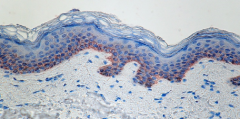
-

IHC staining of anti-Keratin 5 antibody (Poly19055) on formalin-fixed paraffin-embedded human skin tissue. Following antigen retrieval using Sodium Citrate, the tissue was incubated with the primary antibody at 0.2 µg/ml for 60 minutes at room temperature. BioLegend’s Ultra Streptavidin (USA) HRP Detection Kit was used for detection followed by hematoxylin counterstaining. -

IHC staining of Purified anti-Keratin 5 (clone Poly19055) on formalin-fixed paraffin-embedded mouse skin tissue. Following antigen retrieval using Sodium Citrate H.I.E.R. (Cat. No. 928502), the tissue was incubated with primary antibody at 1 µg/mL for 60 minutes at room temperature. BioLegend’s Ultra Streptavidin HRP Kit (Multi-Species, DAB, Cat. No. 929501) was used for detection followed by hematoxylin counterstaining. Images were captured with a 40X objective. Scale bar: 50 µm -

Total lysates (15 µg protein) from A431 (Human, Positive control), MCF-7 (Low expression negative control), Raw264.7 (Mouse) and UMR106 (Rat) were resolved by electrophoresis (4-20% Tris-glycine gel), transferred to nitrocellulose, and probed with 1:500 (1 µg/ml) purified Keratin 5 antibody, clone Poly19055. Proteins were visualized using chemiluminescence detection by incubation with HRP Donkey anti-Rabbit secondary antibody (Cat. No. 406401, 1:3000 dilution). GAPDH (Cat. No. 919501) was used as a loading control (Cat. No. 919501, 1:3000 dilution). -

Immunofluorescence of A431 cells with (A) Rabbit Isotype control (Negative, Cat. No. 910801) or (B-D) Keratin 5 primary antibody (Poly19055). Alexa Fluor® 488 (Green) Donkey anti-Rabbit IgG (Cat. No. 406416) was used as secondary antibody. Nuclei were counterstained with DAPI (Blue, Cat. No. 422801). The image was captured with a 60X objective using KEYENCE BZ-X700 fluorescence microscope. Exposure time (Seconds) for (A) is 1/10, and (B-D) is 1/25. Concentrations for (A, B) is 2 µg/ml, (C) is 1 µg/ml, (D) is 0.5 µg/ml.
| Cat # | Size | Price | Quantity Check Availability | Save | ||
|---|---|---|---|---|---|---|
| 905503 | 25 µg | 100€ | ||||
| 905504 | 100 µg | 280€ | ||||
Keratin 5 is a member of the type II (basic or neutral) cytokeratin family. Type II keratins, in general, are heteropolymeric structural proteins coexpressed during differentiation of simple and stratified epithelial tissues. Keratin 5 is specifically expressed in the basal layer of the epidermis along with Keratin 14.
Product DetailsProduct Details
- Verified Reactivity
- Human, Mouse, Rat
- Reported Reactivity
- Dog, Non-Human Primate
- Antibody Type
- Polyclonal
- Host Species
- Rabbit
- Immunogen
- This monospecific polyclonal antibody was raised against a peptide sequence derived from the C-terminus of the mouse keratin 5 protein.
- Formulation
- Phosphate-buffered solution, pH 7.2, containing 0.09% sodium azide.
- Preparation
- The antibody was purified by affinity chromatography.
- Concentration
- 0.5 mg/ml
- Storage & Handling
- The antibody solution should be stored undiluted between 2°C and 8°C.
- Application
-
IHC-P - Quality tested
WB, ICC - Verified - Recommended Usage
-
Each lot of this antibody is quality control tested by formalin-fixed paraffin-embedded immunohistochemical staining. For immunohistochemisty, a concentration range of 0.2 - 5.0 μg/ml is suggested. For Western blotting, a concentration range of 0.5 - 1.0 μg/ml is suggested. For immunocytochemistry, a concentration range of 0.5 - 1.0 μg/ml is recommended. It is recommended that the reagent be titrated for optimal performance for each application.
- Application Notes
-
Predicted MW is ~ 62 kD. This antibody weakly reacts with mouse.
This product may contain other non-IgG subtypes.
-
Application References
(PubMed link indicates BioLegend citation) -
- Hübner A, et al. 2012. Proc. Natl. Acad. Sci. USA 109:12046. (IHC) PubMed
- Kierszenbaum AL, et al. 2003. Mol. Biol. Cell 14(11):4628. (IHC) PubMed
- Hu Y, et al. 2001. Nature 410:710.
- Yuspa SH, et al. 1989. J. Cell Biol. 109:1207.
- Liang Y. 2011. Patholog. Res. Int. 2011:936794. (IHC) PubMed
- Roop DR, et al. 1984. J. Biol. Chem. 259:8037.
- Product Citations
-
- RRID
-
AB_2734679 (BioLegend Cat. No. 905503)
AB_2734679 (BioLegend Cat. No. 905504)
Antigen Details
- Structure
- Keratin 5 is a 62 kD protein.
- Distribution
-
Cytoskeleton, extracellular, and nucleus.
- Function
- Keratin 5 mutations have been associated with a complex of diseases termed epidermolysis bullosa simplex.
- Biology Area
- Cell Biology, Cell Motility/Cytoskeleton/Structure, Neuroscience, Neuroscience Cell Markers
- Molecular Family
- Intermediate Filaments
- Gene ID
- 3852 View all products for this Gene ID
- UniProt
- View information about Keratin 5 on UniProt.org
Related Pages & Pathways
Pages
Related FAQs
Other Formats
View All Keratin 5 Reagents Request Custom Conjugation| Description | Clone | Applications |
|---|---|---|
| Keratin 5 Polyclonal Antibody, Purified | Poly19055 | IHC |
| Purified anti-Keratin 5 | Poly19055 | IHC-P,WB,ICC |
Customers Also Purchased
Compare Data Across All Formats
This data display is provided for general comparisons between formats.
Your actual data may vary due to variations in samples, target cells, instruments and their settings, staining conditions, and other factors.
If you need assistance with selecting the best format contact our expert technical support team.
-
Keratin 5 Polyclonal Antibody, Purified
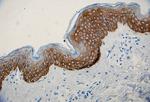
Anti-K5 antibody (clone Poly19055) showing strong cytoplasmi... 

-
Purified anti-Keratin 5

IHC staining of anti-Keratin 5 antibody (Poly19055) on forma... 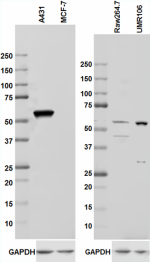
Total lysates (15 µg protein) from A431 (Human, Positive con... 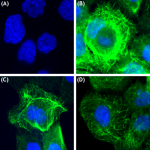
Immunofluorescence of A431 cells with (A) Rabbit Isotype con... 
IHC staining of Purified anti-Keratin 5 (clone Poly19055) on...

 Login / Register
Login / Register 




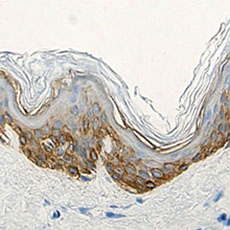
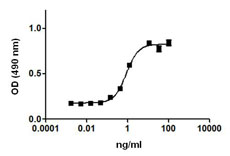
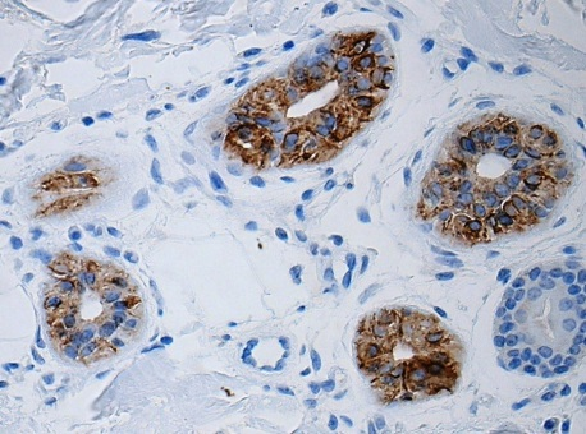
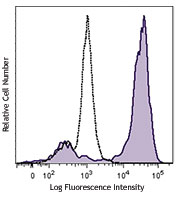



Follow Us